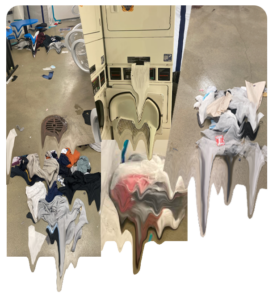At the end of February, the Georgetown University Student Association and the InterHall Council distributed a Residential Living Survey, in which they solicited feedback for a potential prepaid system for laundry services. Spearheaded by GUSA Senator Richie Mullaney (COL ’18), the proposal for a prepaid system would function similarly to Georgetown Dining’s meal swipes. As such, it would become part of a financial aid package that would help students cover these costs and bring further transparency to the breakdown of on-campus housing fees.
While Mullaney’s proposal is still a work in progress, the Editorial Board applauds GUSA, InterHall, and the Office of Residential Living for looking to improve the current system in place for students to do their laundry.
As with any university, the lists of expenses posted on the Student Accounts website hardly reflect the true costs of a Georgetown education. Beyond meal plans and a mandatory membership for Yates Field House, hidden costs for other things like textbooks and printing lurk beyond the officially listed costs and quickly add up for all students.
Laundry is one of those hidden costs. Each load costs $1.50, charged separately for washers and dryers. Many students do multiple laundry loads at a time, and the errand can quickly become an expensive endeavor. Currently, the Office of Residential Living does not include using washers and dryers in the housing rates it charges to on-campus students. Financial aid cannot cover hidden costs. Students who need to cover those expenses might find little help from the university.
In addition to examining financial costs, GUSA should press ResLife to evaluate the poor quality of laundry facilities, which are contracted out to Caldwell & Gregory, a commercial laundry company, and poor student etiquette in laundry rooms. Too frequently, students find washers with standing water, dryers that do not dry clothes, and dirty laundry rooms with overflowing piles of abandoned clothes, dryer sheets, and lint.
A necessity at college, doing laundry, at least for freshmen, could even be considered an important step towards adulthood for those who have never had to clean their own clothes. The university has long overlooked improving laundry services in residence halls and apartments. It therefore should actively consider including prepaid laundry costs in financial aid packages. While it may not seem self-evident, providing affordable and satisfactory laundry facilities is just as integral as providing quality housing spaces if the university is truly committed to creating a thriving campus community and meeting the needs of students.
Photo: Joshua Raftis/Georgetown Voice







